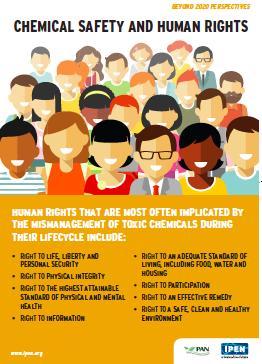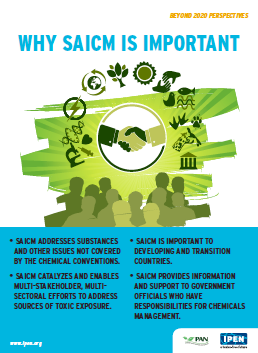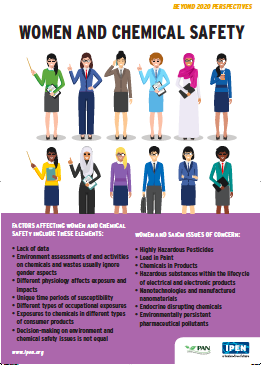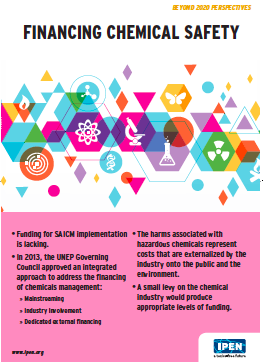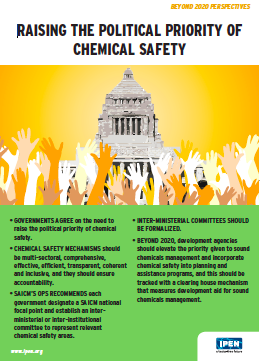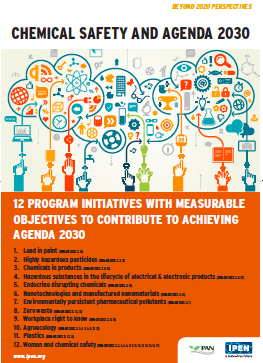Information Materials
5 March, 2018
IPEN Quick Views of 2nd Beyond 2020 Intersessional Process Meeting (اللغة العربية, English, español, русский, français)
This "Quick Views" document highlights IPEN views on SAICM Beyond 2020 issues such as vision, policy principles, objectives and milestones, governance, high-level political commitment and financing. The document also follows IPEN comments that were provided to Brazil and Canada, the Co-Chairs of SAICM's "Beyond 2020" intersessional process.
4 March, 2018
IPEN Beyond 2020 Perspectives (français / русский / español / اللغة العربية)
The Strategic Approach to International Chemicals Management (SAICM) is the only international agreement that addresses the full range of known and newly discovered health and environmental concerns associated with the production and use of chemicals. The 2006 decision that established SAICM expires in 2020 and now there is a global process to determine what comes next. In 2017, in advance of the 1st Meeting of the Intersessional for Process for SAICM beyond 2020, IPEN and Pesticide Action Network collaborated to produce a series of documents that highlight civil society views on key topics for the Beyond 2020 process. The papers describe SAICM’s importance, how chemical safety can contribute to sustainable development, and how actions should be financed. In addition, the papers deal with the relationship between women and chemical safety, how the industry should reduce and eliminate hazard through design, and the connection between human rights and chemical safety. These papers continue to be relevant for the 2nd Meeting of the Intersessional Process, and you can read all the papers here.
1 March, 2018
For the 2nd intersessional meeting, IPEN created a group of posters based on IPEN's Beyond 2020 Perspectives:
Conference variant

